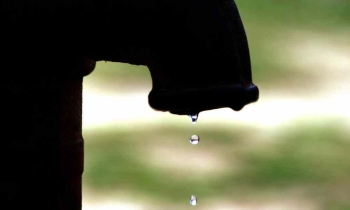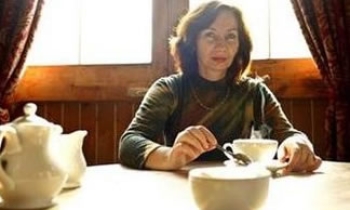A grand jury in the US is investigating the source of a leak that led to the public unmasking of a CIA agent in 2003.
The leak formed part of the wide-ranging controversy about the US administration's justification for the invasion of Iraq in 2003.
It sparked a major political row in 2003 that has refused to subside.
The BBC News website looks at key issues in the case.
What is the grand jury investigating?
The grand jury is attempting to decide whether there is enough evidence for the CIA to launch a prosecution against the person - or people - judged responsible for leaking the name of CIA agent Valerie Plame to the press in 2003.
Revealing the identity of a covert CIA agent is a federal offence, and special prosecutor Patrick Fitzgerald has spent two years investigating who the source of the leak was.
There has been intense speculation that at least one senior official working within President Bush's White House was responsible for revealing Ms Plame's identity to newspaper columnist Robert Novak.
President Bush has vowed to fire anyone in his administration found guilty of committing a crime.
Why was Valerie Plame's name leaked?
Ms Plame, a CIA agent, is married to Joseph Wilson, a career diplomat who travelled to the west African state of Niger in 2002 to investigate reports that Saddam Hussein's Iraq had tried to buy uranium there.
Mr Wilson came back and reported that he did not believe the reports, undermining US claims that Iraq was trying to build a nuclear bomb.
Nevertheless, President Bush referred to them in his State of the Union address in January 2003.
On 6 July Mr Wilson wrote an article in the New York Times in which he said he believed that "some of the intelligence related to Iraq's nuclear weapons programme was twisted to exaggerate the Iraqi threat".
A little over a week later Mr Novak reported that a senior administration official told him that Mr Wilson's trip was inspired by his wife, who was described as "a CIA employee working on weapons of mass destruction".
The accusation ever since has been that Ms Plame's identity was leaked as a form of payback for her husband's criticism of the US government.
Why would the White House want to undermine Joseph Wilson?
He once worked on the National Security Council for President Clinton and was seen by the Bush White House as an opponent.
Mr Novak says Wilson had become a critic of the president's policy in Iraq and had contributed to the Al Gore campaign in the 2000 election and to Senator John Kerry in 2004.
It is not known exactly what Valerie Plame's role in the CIA is or was, but the fact that the CIA is taking legal action suggests she did have an undercover role.
Who was responsible for the leak?
Speculation has been rife in the US media that President Bush's closest political adviser, Karl Rove, was ultimately responsible for the leak.
The White House has denied that either Mr Rove or Lewis "Scooter" Libby, chief of staff to Vice-President Dick Cheney were involved in leaking Ms Plame's identity.
Prosecutor Patrick Fitzgerald has attempted to find out the source of the leak, using legal powers against journalists.
In June, two reporters were ordered to reveal the identity of their sources within the administration.
The leak of Ms Plame's name was not made to either of the two journalists - Matthew Cooper or Judith Miller - but they came to the attention of the prosecutor because of their inquiries
Time magazine's Matthew Cooper agreed to the request, telling the grand jury that Mr Rove and Mr Libby told him about Ms Plame, although not by name.
Judith Miller of the New York Times, a Pulitzer Prize-winning reporter, had done research into related matters but never actually published anything. However, she ended up spending 85 days in jail after she refused to name her source.
She was released from jail in September 2005 and agreed to testify only after formal authorisation from her source.
Miller has not named her source publicly, but US media reports says he is understood to be Mr Libby.
Mr Libby had indicated that he was happy for accounts of conversations they had had to be given to the inquiry.
What happens now?
Mr Fitzgerald has indicated that he may be able to finish his investigation after Judith Miller's testimony.
As yet, the issue of the CIA leak has not forced any resignations.
If the inquiry finds that there was a deliberate leak, it is possible that criminal charges could follow. It is equally possible though that no criminal charges will be file and this affair will be a political embarrassment to the White House, nothing more.
Robert Novak, who has not indicated publicly whether or not he has actually testified before the grand jury, has said he will discuss his role in the row when the jury is wound up.









